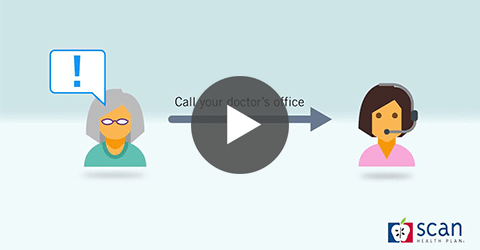Have you set your Communication Preferences yet?
We want to know how you'd like your SCAN materials delivered to you: online, in the mail—or mix and match.
Click the button below and make changes to your communication preferences.
Videos
Health Topics and Tools
- Advance Care Planning
- Before and After Hospital Stay
- COVID-19 Information
- Fall Prevention/Home Safety
- Flu
- Going to the Doctor
- How to Keep Your Heart Healthy and Strong
- LGBTQ+ Health
- Living Well with Diabetes
- Mental Health
- Physical Activity
- Protecting Yourself from Fraud
- Quality Improvement Program
- SCAN Case Management Programs
- SCAN Healthy at Any Age Podcast Series

We're happy to help today. Call Member Services:
(800) 559-3500 TTY: 711
Hours are 8 a.m. to 8 p.m., seven days a week from October 1 to March 31.
From April 1 to September 30, hours are 8 a.m. to 8 p.m. Monday through Friday. Messages received on holidays and outside of our business hours will be returned within one business day.








